A bipartisan group of legislators are reintroducing legislation to update how Wisconsin regulates physician assistants (PAs). This group includes Senators Kathy Bernier (R-Chippewa Falls), Dale Kooyenga (R-Brookfield), and Brad Pfaff (D-Onalaska) and Representatives Nancy VanderMeer (R-Nekoosa), James Edming (R-Glen Flora), and Dave Considine (D-Baraboo). Similar legislation passed the Assembly on a voice vote in February 2020 but stalled when the Senate cancelled its last floor period due to the COVID-19 pandemic.
The bill, which began circulating for co-sponsorship on February 15 as LRB-0656, reflects a compromise agreed to in the 2019-20 legislative session by the Wisconsin Academy of Physician Assistants, the Wisconsin Hospital Association, the Wisconsin Medical Society, the Wisconsin Academy of Family Physicians, and associated specialty physician associations.
Under current law, PAs practice under the general supervision of a physician and a physician may not supervise more than four PAs. This bipartisan legislation would allow PAs to practice in collaboration with a physician, similar to the existing nurse practitioner-physician relationship, thus allowing PAs to practice to the full extent of their education, experience and training. In particular, the legislation would enable hospital systems and clinics to more effectively deploy their PAs to help expand access to health care, particularly in rural and underserved areas.
The bill would allow PAs to govern their profession by creating a PA Examining Board affiliated with the Medical Examining Board. This board would be explicitly prohibited from promulgating rules permitting a scope of practice broader than what would be permitted under collaboration. PAs would be required to have a practice relationship with a physician structured in one of two ways:
- A written collaborative agreement with a physician that describes the PA’s individual scope of practice or
- A PA practice under the direction and management of a physician who is responsible for assuring the services provided by the PA are medically appropriate
The bill would not create a means for PAs to practice independently. PAs would be required to consult with or refer to other licensed health care providers with a scope of practice appropriate for a patient’s care needs when a patient’s care needs exceed the PA’s experience, education, or training.
